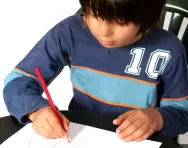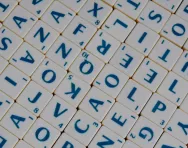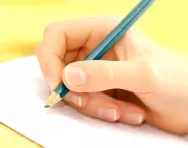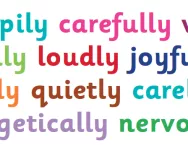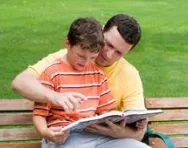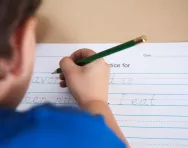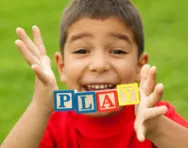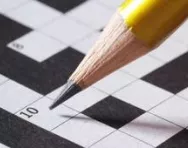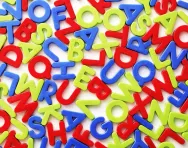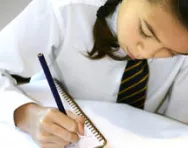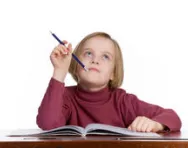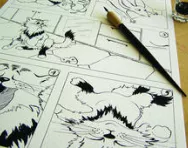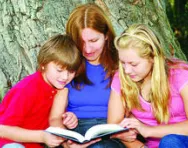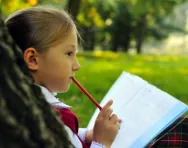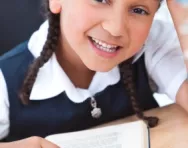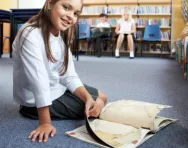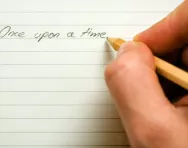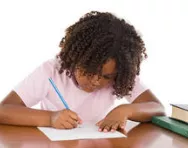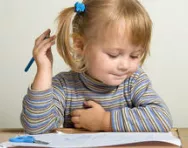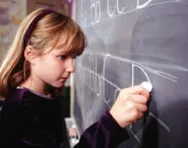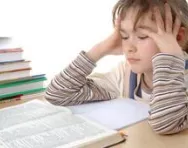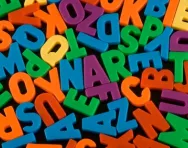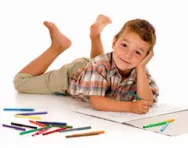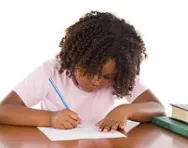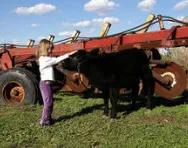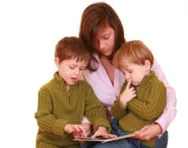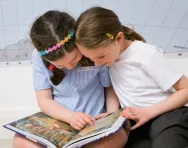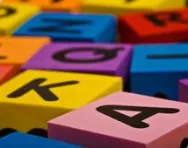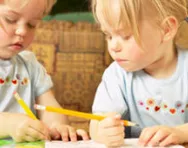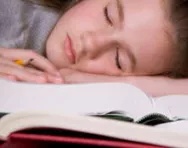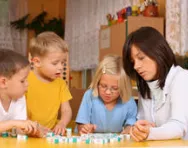Ks2 English articles
9 fun writing projects to boost literacy skills
Stories aren’t just for reading – teachers regularly use a story as a starting point to engage children in many writing activities that cover a wide range of objectives. Here, education writer Phoebe Doyle gives you a few suggestions for doing the same at home.
5 unusual ways to help with spelling
Help your children improve their spelling skills with games and activities that build word-savviness in fun and interesting ways.
All about dysgraphia
Could your child’s difficulty with writing be dysgraphia? Find out what the signs are, and what to do about it.
What are adverbs?
Use our quick guide to adverbs to help your child understand this descriptive part of speech.
Develop your child's literacy skills in the early years
Supporting kids’ literacy skills at home is a key factor in helping them to become accomplished readers with broad vocabularies. Get started today!
Writing practice: how to help your struggling child
Is your child’s handwriting a cause for concern? Help them to improve it with these simple activities.
3 steps to success in reading, writing and arithmetic
The 3Rs may not conjure up happy memories for you, but bestselling author and educational expert, Bernadette Tynan, explains how you can make sure they do for your child.
Expert spelling tips for KS1 and KS2
Tutor and author of the best-selling Spelling Made Magic, Clare Winstanley, shares her practical tips and clever tricks to make spelling practice fun for KS1 and KS2 children.
9 spelling strategies from real parents
Helping your child master spelling starts in Reception and continues throughout the primary years. Lucy Dimbylow asked real parents for their top tips on making learning spellings fun.
Top 5 grammar mistakes sorted
Are you confident in helping your child to master grammar? Jackie Cosh explains the basic rules you need to know.
Good grammar made easy
Good grammar isn't just for English lessons – it's a vital skill that will take your child through their educational journey and their life. It's not hard once you know the rules, says Jackie Cosh.
Storytelling ideas for Key Stage 2
Stimulate your child's storytelling skills with these unusual literacy activities.
Film-making and animation fun for children
How can you stimulate your primary-school child's interest in literacy and storytelling? From script-writing to editing, these hands-on movie-making activities are perfect for older children to have a go at. You might even help inspire the next Danny Boyle!
What your child learns in Key Stage 2 English
Your guide to what your child will learn in years 3, 4, 5 and 6 in English.
Year 3 English: What your child learns
Your guide to what your child will be taught in English lessons in Year 3 as they move into KS2.
Year 4 English: what your child learns
Unsure what your child gets up to in English lessons? Get clued up with our guide to the Year 4 English curriculum.
Year 5 English: what your child learns
Whether your child is a bookworm or doesn’t enjoy English at all, knowing what they’re learning in school means you can give them extra support at home. Here’s your guide to what they’re being taught as part of the Year 5 English curriculum.
Year 6 English: what your child learns
Find out what your child will be taught in Year 6 English and support their learning at home so they feel confident in their skills, ready for the move to secondary school.
Apostrophes – get them right every time
Apostrophes are tricky things. Do they imply ownership or are they there to denote a missing letter? Do they go before the ‘s’ or after? Jackie Cosh explains how to help your child master them.
Five steps to success in developing your child’s handwriting
In a world where technology is rapidly taking over, teaching children handwriting skills is still as important as it ever was. Best-selling author Bernadette Tynan offers five steps to handwriting success.
Handwriting practice makes perfect
Why is handwriting practice so important, and how can you help your child to learn? Find out in our guide.
10 steps to better handwriting
From confiding in a diary to writing requests for treats, these everyday strategies will help your child improve their handwriting at home.
Homework tips for children with dyslexia
The British Dyslexia Association shares tips to help make doing homework a calm and productive process for your dyslexic child.
9 ways to help your child love poetry
Use National Poetry Day as an excuse to enjoy the creative wordplay that poetry can offer! Coax out the budding poet in your child with these games and activities, and boost their literacy skills the fun way.
Roald Dahl Day: five ways to celebrate
While there’s always a reason to enjoy and celebrate the amazing books that Roald Dahl wrote, make a special effort on Roald Dahl Day to organise phizz-whizzingly brilliant activities and scrumdiddlyumptious treats!
What are high frequency words?
As your child learns to read and spell they’re likely to bring home lists of words. Moira Holden looks at ways in which you can reinforce the learning of high frequency words at home.
Childhood dyspraxia explained
Your guide to what dyspraxia is and how you can support a dyspraxic child at home.
How to strengthen your child's coordination skills
Handwriting, buttoning, drawing or using a knife and fork… your child’s hands can perform the most amazing array of tasks. We take a look at how you can support the development of your child's movement skills.
Dyslexia: strengths, advantages and opportunities
While dyslexic children can have learning difficulties they can also be very gifted in certain areas. Find out how to create a positive and constructive learning experience for your dyslexic child with our top advice.
Inspire your child to write poetry
Encouraging your child to pick up a pen and try writing some poetry can help them become more emotionally literate and improve their confidence. We have some top children's poetry tips.
Learning English and maths outdoors
The great outdoors is a place where learning can take diverse shapes and forms. We take a look at how you can use it to strengthen your child’s literacy and numeracy skills.
Why it’s important to make time for reading
Reading with your child is a valuable part of their learning, and your relationship, but how do you make the time in busy family life?
Top tips to help your dyslexic child enjoy reading
Reading might be difficult for some dyslexic children, but that doesn’t mean they can’t enjoy it. We have tips to help you inspire them to love books.
How storytelling can boost learning
As a tool for developing speaking skills, literacy and bonding between parent and child, storytelling is unsurpassed. Phoebe Doyle investigates why it’s so beneficial.
5 great spelling games
Spelling games help children learn in a way that is fun and memorable. We’ve rounded up our favourites, from shop-bought games to those you can create yourself at home.
10 steps to a book-filled summer
Want to make sure books feature strongly during your child’s summer break? TheSchoolRun suggests ways to help you make reading a pleasure.
Learning literacy at home
The everyday world provides a wealth of learning opportunities to get your child using their literacy skills outside school. Try these top tips to get your child writing and reading at home.
SATs revision: your KS2 SATs English helper
Boost your child's confidence before the Y6 English assessments with these handy tips and literacy activities that you and your child can work on together.
SATs advice: spelling strategies
During their time in primary school children learn to spell words accurately by a combination of approaches. Help boost your child's spelling confidence for SATs success with our strategies and suggestions.
